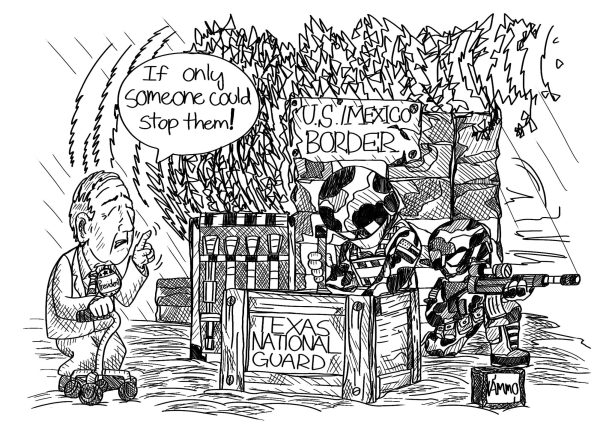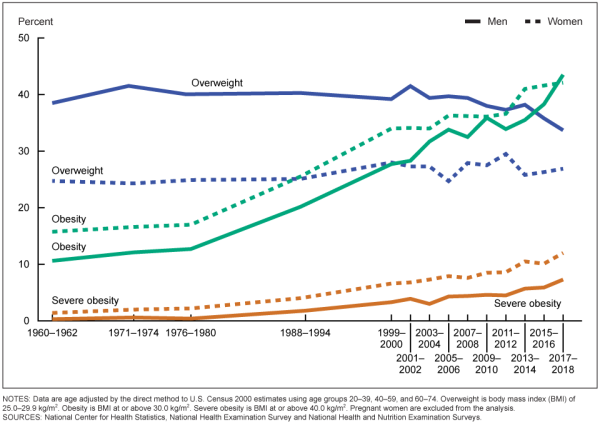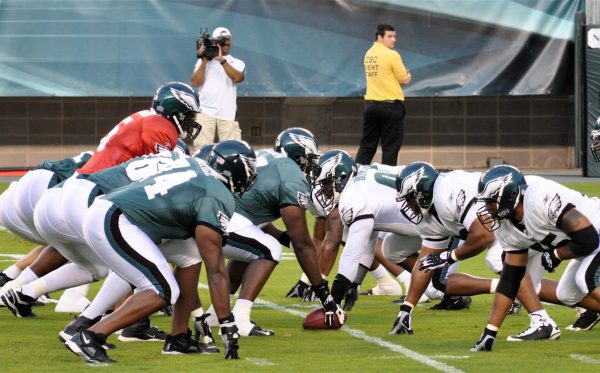Ignorance of the law is no excuse… except when enforcing it
April 10, 2016
Picture this: you’re sitting in your parked car, minding your own business and discreetly enjoying some Old Toby (it’s the finest in all of Southfarthing, don’t you know) while listening to The Fire in Our Throats… by Pelican on the stereo. When suddenly, your blissful retreat is interrupted by a loud rat-a-tat-tat on your window by, much to your displeasure, an officer of the law.
Nothing to really worry about, though, you’ve got the appropriate recommendation and the papers to prove it, right? Wrong. This officer is not only low on issued citations for the months, but has been having an especially bad day — he wants to charge you with a DUI.
You argue that the engine wasn’t even running, how could you possibly be driving the car? It turns out, as far as the law is concerned, having the key in the ignition, which you needed to play the stereo, is all that’s required to meet the legal definition of “driving.” Your protests and appeals to reason fall on deaf ears, dispelled with the recitation of the stern truism, “ignorance of the law is no excuse for breaking it.”
But what happens when a cop doesn’t know the law?
In the 2014 case Heien v. North Carolina, Sergeant Matthew Darisse followed the car of Nicholas Brady Heien before initiating a stop for a broken brake light. During the stop, Sergeant Darisse obtained consent to search Heien’s vehicle, wherein he found a stash of cocaine. Heien was promptly arrested and charged with attempted trafficking.
This all seems perfectly normal and above board, except for one small problem. In North Carolina, driving with one break light out is perfectly legal; in order to be in violation of North Carolina’s vehicle code, both brake lights must be out. Put simply, Darisse had no probable cause to execute the stop in the first place. Thus, argued Heien’s legal counsel, the traffic stop illegally violated Heien’s Fourth Amendment rights and all findings gained from that stop must be suppressed from evidence.
The Supreme Court, however, disagreed. In the 8-1 decision, the Court ruled that Sergeant Darisse’s actions were the result of a “reasonable mistake of law,” and that a police officer only requires “reasonable suspicion” that a law is being broken in order to lawfully stop and question a citizen — even if the law the officer suspects is being broken is not an actual law.
Justice Sonia Sotomayor, the lone voice of dissent in the decision, rightly lambasted the Court’s decision as an unprecedented assault on the Fourth Amendment rights of all citizens, giving officers the leeway to make decisions that should be made by a judge.
“There is scarcely a peep in these cases to suggest that an officer’s understanding or conception of anything other than the facts is relevant…. The same cannot be said about legal exegesis. After all, the meaning of the law is not probabilistic in the same way that factual determinations are…. And it is courts, not officers, that are in the best position to interpret the laws.”
In the face of the decision, “one wonders,” Justice Sotomayor continues, “how a citizen seeking to be law-abiding and to structure his or her behavior to avoid these invasive, frightening, and humiliating encounters could do so.” Indeed, the court has ruled that not only do police officers have no obligation to know the laws they are enforcing, they effectively have the ability to make judicial interpretations by pleading ignorance.
So long as this decision continues to set a precedent in U.S. case law, the Fourth Amendment carries no weight whatsoever. Not only this, but law enforcement officers actually have an incentive to know as little about the law as possible; after all, the less a given officer knows about the laws they are enforcing, the broader the interpretations – beg your pardon, “reasonable mistakes” — that can be taken under the umbrella of, “I reasonably but mistakenly thought a law was being broken, your Honor.”












































































